Working Holiday Visa in Australia – Ultimate Guide
If you’re thinking about doing a working holiday visa in Australia, first and foremost let me say – DO IT! Seriously don’t give it a second thought because it will most definitely be the best year(s) of your life. Before you decide to move to Australia there are a few things you’ll have to consider, documents to get in order and other things to think about. I’m talking visas (entry into the country), finding a job, housing, making friends and a whole lot more! I’ll take you through it all in this ultimate guide.
BEFORE
How much money you should save:
Having enough money saved before you take off to Australia is something you’ll need to consider ahead of time. People used to always ask me how much I had saved before going and I honestly can’t remember the exact amount – which I know isn’t much help! So instead of giving you an exact number, here’s a few things you should think about …
- Where you want to live – Rent will vary depending on which city or state you choose to live in, so you’ll have to look into that but I’ll get into that below! If you want to live closer to a city or beach, the prices will be higher than a more remote location.
- How much you typically spend each month at home – Take a look at your current expenses and then look into how the prices of food, activities, going out etc are compared to Australia and where you’ll be living. That should give you a good indication of how much you should have readily available each month.
- How much the flight, insurance & visa will cost you – Typical living expenses aren’t all that you’ll have to think about before heading down under. Make sure to calculate the flights, travel insurance and visa cost beforehand. Don’t worry, I’ll cover all of that in more detail below!
Once you’ve thought about all of those things and done the math, you’ll have a decent idea of how much money you’ll need to keep you afloat for the year. Of course this number can easily be offset by the money you’ll make working in Australia BUT low ball how much you might make there because you never know how long it may take you to find a job you’re happy with!
Visa:
Before I get into the working holiday visa, I just want to touch on some other options as well!
- Tourist visa (up to 90 days) – A tourist visa is a great way to travel through Australia and get a sense of where you’d like to live before getting the working holiday visa. It allows for multiple entries over a three month period and costs $20 AUD (Subclass 601). You can also opt for a tourist visa that lasts anywhere from 3-12 months and costs $145 AUD (Subclass 600). You can find more info about tourist visas here.
- Student visa – Another great option for living abroad in Australia is by studying there. You can do this a few different ways. If you do a study abroad program through your home university/college they’ll sort out the visa for you. If you choose to go to Australia as an international student you would apply for the student visa (Subclass 500) for $620 AUD. It allows you stay in the country for up to 5 years while completing full time studies.
Subclass 417:
Otherwise known as the Working Holiday Visa, Subclass 417 allows you to work and live in Australia for up to 12 months. You have to be between the ages of 18-30 years old to qualify.
- What countries are eligible?
People from Canada, Belguim, France etc can get this visa. You can find the full list of countries here.
- How to extend the visa:
If you’re interested in doing a second year, you’ll have to complete 3 months of farm work during the first year that you’re there. The same goes for completing a third year, in which you’d have to complete 6 months of farm work within the second year.
- The cost:
It costs $485 AUD to apply for the 417 Working Holiday Visa.
Subclass 462:
This visa is known as the Work and Holiday Visa is essentially the same as the 417 visa. The main different is the list of countries that can apply for the 462 visa. The cost and method of extending the visa are the same as mentioned above for Subclass 417.
Choosing the right place for you:
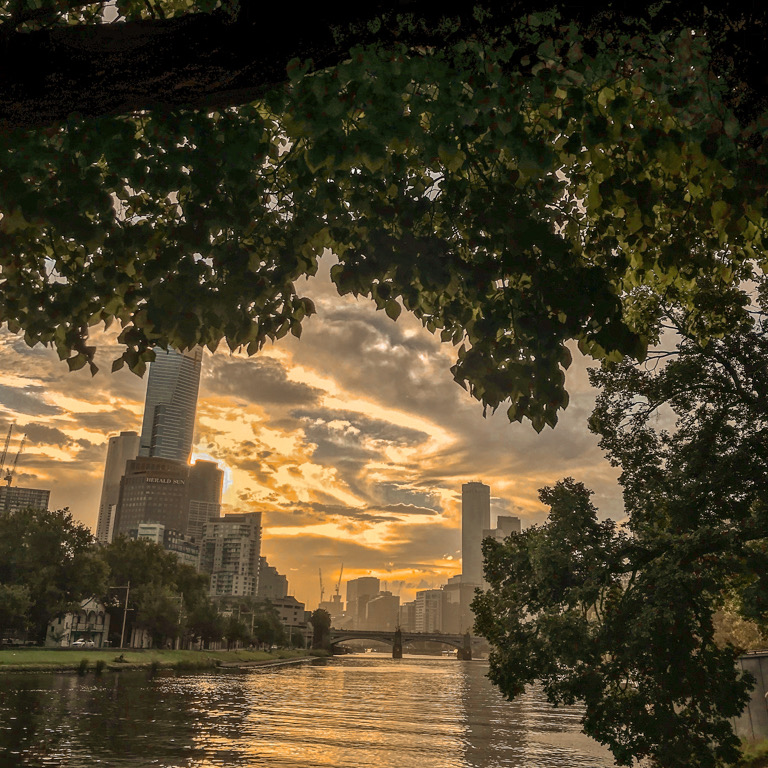
When it comes to choosing what city you’d like to live in during your working holiday visa in Australia, it can be a bit overwhelming. I personally had no trouble choosing after spending a a semester studying abroad in Melbourne. I knew without a doubt that I wanted to go back there to live.
If you aren’t quite as lucky as me and don’t really know where you’d like to go, there’s a few places I’d suggest …
- Melbourne – I’m definitely biased but I think Melbourne is the best city to live in while you’re in Australia and here’s why: It has the perfect balance of city life meets nature/beaches. The weather is also warm from November – May/June each year and the ‘winter’ months provide a change of pace (and opportunity to visit other parts of the country to escape the cold if you’d like). Lastly, Melbourne has been voted the most liveable city 5 years in a row now so I’m not the only one who thinks it’s the best!!
- Sydney – Sydney is a fan fave for sure and I can see why. It pretty much has great weather year round and is what people typically think of when they contemplate moving to Australia. The thing to keep in mind with Sydney is that it’s a slightly higher cost of living than other cities. It can also be very touristy!
- Brisbane/Gold Coast – If you’re looking for a more low-key city, Brisbane might be right up your alley. I found it a tad boring and it isn’t near a beach which is a bit unfortunate BUT, it’s close to the Gold Coast (1 hour drive). The Gold Coast and Queensland in general has some of the best beaches in Australia! Not a bad place to call home for a while if you ask me.
- Perth – Perth is also known for spectacular beaches and a relaxed lifestyle. The city is much smaller than the ones previously mentioned but still has a fair amount going on!
- Adelaide – Adelaide is known for its food, festivals and beaches (of course). It’s the smallest of the cities by population, so it’s a good spot if you aren’t a big fan of city life.
Of course, you shouldn’t necessarily feel pressured to choose one specific spot right off the bat. If you’re more about spontaneous travel and intend on moving around during your working holiday visa in Australia, do that! Test the water in a few places and if you don’t like it, you can always pick up and go to the next place.
Flights:
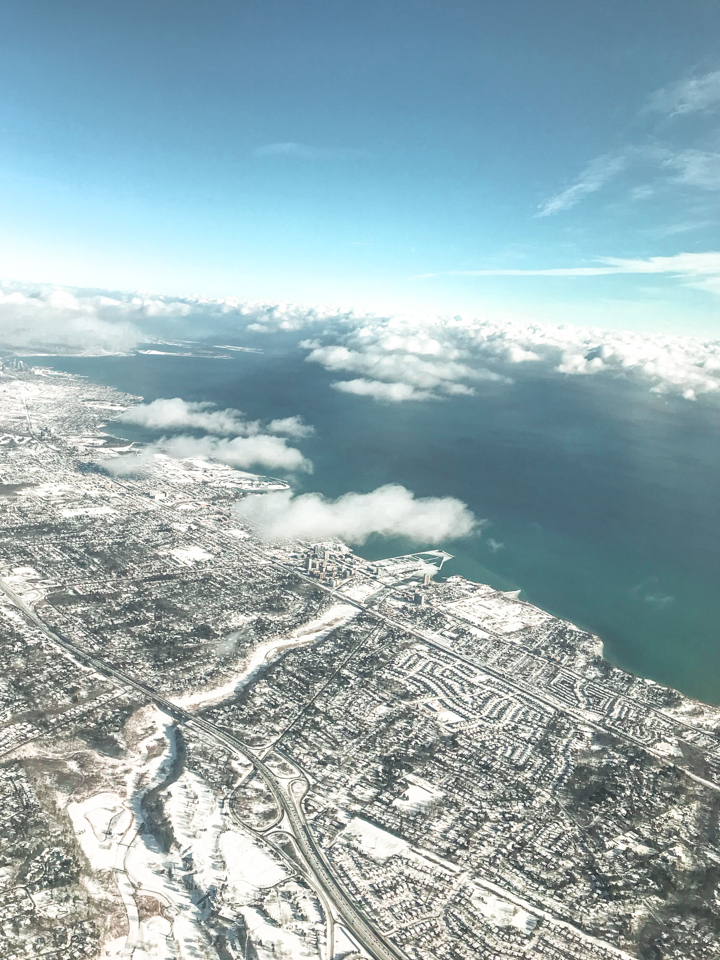

Flight prices will go up and down, no matter which country you’re flying from. They can be quite expensive (I know from experience – Canada to Australia is one heck of a journey) so you’ll have to work that into your budget beforehand.
Although roundtrip flights are always more cost effective, I’d suggest going with a one-way. If you need to be back home at a certain date, then you may want to stick to a roundtrip. On the other hand, if you have some flexibility in when you could come back home, don’t bother booking that flight just yet! See how the first year goes on the visa and then you can take things from there. If I know anything at all, you’ll probably want to extend your visa so it’s best to just go with that one way!
Bonus tip for my Canadian friends:
I was recently told that you can get the cheapest flights from Toronto by flying through Honolulu. After looking into it a bit more, I discovered this life hack could’ve saved me hundreds of dollars on previous flights to Australia!!
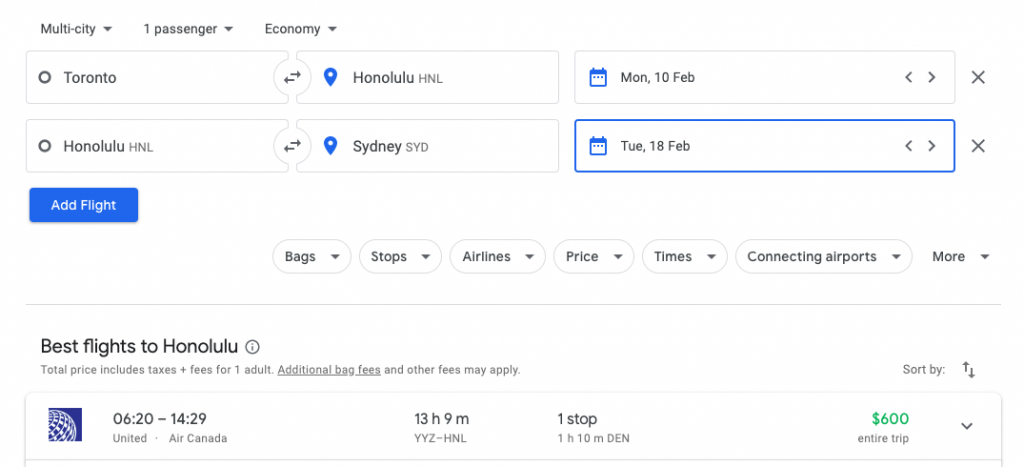

Depending on the dates you play around with, you can either take a quick trip to Hawaii or save the money and go right to Aus.


Travel/medical insurance:
When thinking about doing a working holiday visa in Australia, you need to consider the cost of travel/medical insurance. This is necessary when working in Australia.
I got insurance through RBC when I was home in Canada for 6 months (as I wasn’t sure how long I’d stay in Australia). After having a few issues dealing with them while I was abroad, I decided to switch to a different plan. I spent HOURS trying to find an insurance company in Australia but unfortunately they wouldn’t cover me. I ended up hearing about a global insurance provider known as World Nomads. They have pretty standard rates and it’s great for any travel!
Set up a possible job/internship:
You should also think about whether or not you’d like to try and find work opportunities before landing in Australia. I personally went with the intention of getting experience in my field. I studied English & Communications at McMaster University in Canada, so I spent around a month reaching out to different companies and applying for various internships. Eventually I found one through Pedestrian TV. Then I started writing blog posts for the company from home in Canada prior to leaving.
LinkedIn is another useful source when it comes to finding jobs in Australia ahead of time. Just keep in mind that it will be much harder to find a job when you’re not in the country yet. It’s also very challenging to find a professional role (depending on the field) while you’re on a working holiday visa in Australia.
For a full guide to finding paid internships while you’re abroad, be sure to check out my post on it here.
If you don’t have the time, don’t know where you’d want to settle down to work or aren’t sure what job you’d like to pick up – then don’t worry about setting anything up before leaving. You can deal with that later!
DURING
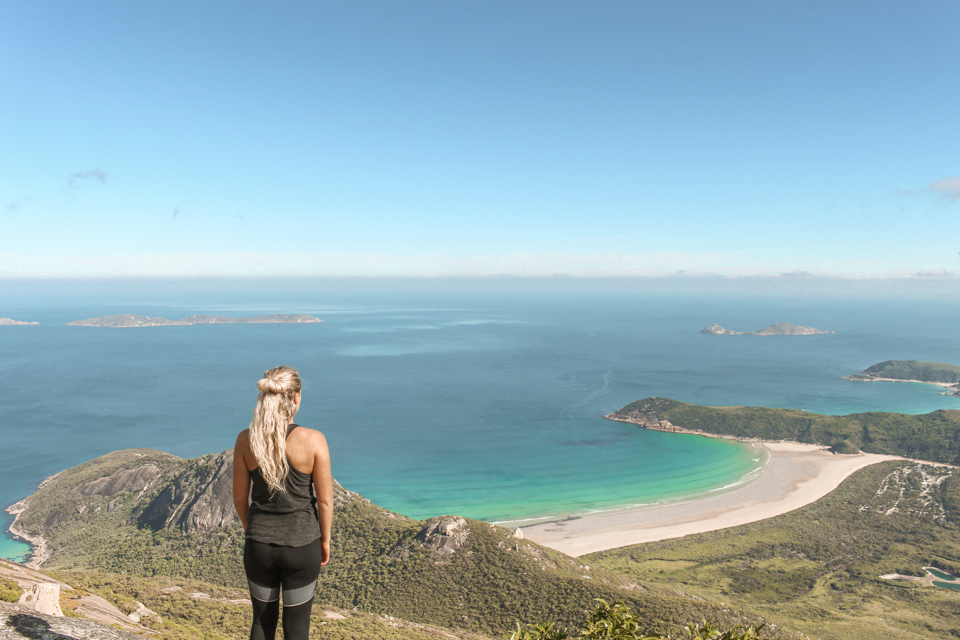
Getting a phone plan:
So you’ve finally landed in Australia! First things first, get your phone situation sorted. The phone plans for travellers in Australia are simply put – awesome. Since I’m from Canada I’m used to OUTRAGEOUS pricing for cell service so I’m not too hard to please.
There’s a few different budget providers you can go with but I personally chose Vodafone (for no real reason in particular). At the time I was paying $35/month for 12.5 gb of data, 100 minutes of international calling and free calls Australia wide. Now this price will probably vary depending on when you go and their rates changing but all in all, it’s a pretty darn good price!
You’ll need your passport when you go to get a SIM card so don’t forget to bring that with you.
Setting up your bank account, tax file number & superannuation:
Banking:
Getting your banking set up will be the next step you’ll want to take once you arrive. Here’s how you should decide what bank you go with and what info you’ll need:
- You’ll need your passport, social insurance number, another form of ID (driver’s license) and your current address in Australia. If you aren’t settled or are currently staying at an Airbnb or hostel, giving that address is fine!
- Does your bank at home have an affiliate bank in Australia? (You can look into this ahead of time). My bank at home is Scotiabank and their affiliate bank in Australia is Westpac so it made for an easy decision. While you can figure out a wire transfer, there is a fee involved. If you want to avoid the fee you can use your bank card at home at the affiliate bank’s ATM to withdraw cash for no additional fee! So I would suggest upping the daily limit on your card so that you can take out large sums of cash for free then deposit it into your account at your new bank.
- What banks are close to where you’re living? When it comes down to it, convenience is key so pick one that’s a good distance to you.
Tax file number:
A tax file number is mandatory while working in Australia unless you want to be taxed at 47% (instead of 15% for backpackers with a tax file number). It’s free and can be done online through the Australian Taxation Office. You can do this once you have a job but it’s best to just get it out of the way and set it up before you have anything set in stone! You’ll also need this number when it comes to doing taxes so make sure you hang onto the info.
Superannuation:
Superannuation is a mandatory system in place to take money from each pay cheque and put towards a retirement fund. It doesn’t make much sense that those who are doing a working holiday visa in Australia are expected to join one but it has to happen.
Once you get a job, they’ll give you their superannuation information and you’ll have to create an account with their Super. If you choose to have multiple jobs (as I did), make sure to ask what Super they’re with. If they use a different Super, ask if they can put your Super money into one account. TRUST me when I say this will make your life a whole lot easier when it comes to doing taxes and eventually claiming your Super money back after you leave Australia!
Figure out public transportation:

If you’re going to be living in/near the city, odds are you’re going to become quite familiar with the public transit. Some places are more connected than others (Melbourne has trains, buses & trams while Sydney has no trams for example).
From most airports you can grab a SkyBus or shuttle of some sort to the city. From there you can load money onto the card used for transportation. Melbourne has Myki (PTV app), Sydney has Opal, Perth has SmartRider, Brisbane has go card and Adelaide has a Metro.
Finding a place to live:
Finding a place to live in Australia can be somewhat stressful! You can always look into it ahead of time but I would highly suggest staying in a hostel or with friend (if you already know someone in Aus) while you get settled. This way you won’t feel so rushed to find a place and can explore different neighbourhoods to see where you’d like to end up!
Where to look
- Airbnb – Sure, Airbnb is typically used for short stays but you could always find a long term place! Just adjust the settings and see what there is to offer. If you know you’re only planning to be there for half a year, you may have more luck.
- Gumtree – Gumtree is basically Australia’s Kijiji (only Canadian’s will understand 😉 ). You can buy and sell things but it also has postings for rentals.
- Fairy floss – This Facebook group is run by a real estate group and was the first place I used to search for a room in Melbourne. It was the talk of the town at the hostel I was staying at but I didn’t seem to have the best luck personally.
- Flatmates.com.au – Last but not least is my FAVOURITE method for house hunting in Australia! This site is easy to navigate, people respond quickly, it’s professional and how I found my home in Melbourne!
Prices to expect
- General prices – While prices of rent will vary from city to city, you can expect to pay anywhere from $700 – $1800 AUD/month. A large range – I know! You’ll pay much less in the suburbs and the prices go up in the cities. I was paying $1000 AUD/month with everything included in a South Yarra house with 2 roommates (a 10 minute train from Melbourne’s CBD) and that was a pretty good deal! Most people in my neighbourhood were paying $1200+. Keep in mind that they advertise rent prices by WEEK and not month! This was a bit confusing to me at the start.
- Bond – Otherwise known as a security deposit, you’ll most likely be expected to pay a bond when you pay your first (and possibly last) months rent!
Finding a job:

Finding a job while doing a working holiday visa in Australia can be a little challenging if you’re picky (like I was). Don’t get too discouraged though because it’s definitely possible to get the type of work you’re looking for with some determination! Let’s jump into different types of work you may be looking for.
- Cash in hand jobs – If the thought of dealing with taxes absolutely terrifies you, maybe stick to these types of jobs. You can probably get crafty and find many jobs like this but the ones you’ll most commonly cross paths with are serving/bartending, barista, nannying (Au Pair) and tutoring positions. Serving/bartending and barista jobs are usually the easies to get if you have some previous experience. You’ll need to do an RSA (Responsible Service of Alcohol) course which can be done online in all States except for Victoria and Canberra. There are heaps of free tutoring and Au Pair sites online. I had no trouble finding a few students within walking distance to tutor while I was living in Melbourne!
- Professional jobs – If you’re a new graduate or young professional, you may be seeking a job in your field. Depending on the line of work you’re in, you may have trouble finding a job immediately. I personally started out doing an unpaid internship part time, while holding down other jobs. If you can get any admin job in the meantime with a University/College, they will pay VERY WELL! After getting some experience I was able to find paid internships and other paid jobs in my field (copywriting/digital marketing). I found most of my work through LinkedIn and Pedestrian TV jobs but also applied through SEEK and HAYS.
Making new friends:
I think everyone who does a working holiday visa in Australia fears that they won’t make friends. It’s an irrational fear because ultimately you’re going to meet more people than you can imagine! Whether it’s through work or on your own, you will end up meeting people. End of story!
You can read my full guide to making friends while living abroad/solo travelling for the best tips!
Staying in touch with family/friends at home:
Depending on the time difference between Australia and the place you call home, you may have trouble connecting with family and friends. You may find that you’ll have to put in a lot more effort than usual.
This can be challenging at times, especially when you find some people don’t continue the relationship. Instead of seeing this as a negative aspect, I found it was a good way to see who was willing to put in the time to stay in touch and who wasn’t!
Exploring your new home:
Now comes the fun stuff! Exploring wherever you decide to call home is an exciting part of living abroad in Australia. For some, you may be exploring a few different cities if you choose to move around!
The best way to explore the place you’ll be living in is by foot. I spent a lot of time walking around Melbourne (some of which was house-hunting) to fully get to know the city. I had a lot of fun discovering cool spots on my own and eventually with new-found friends! If you’re having trouble discovering interesting places, I’d suggest hitting up Instagram for inspiration. Just search under locations and you’ll find some pretty neat things to see and do! You can also follow my Instagram for lots of great Aus inspo 😉
Travel Australia on a budget:
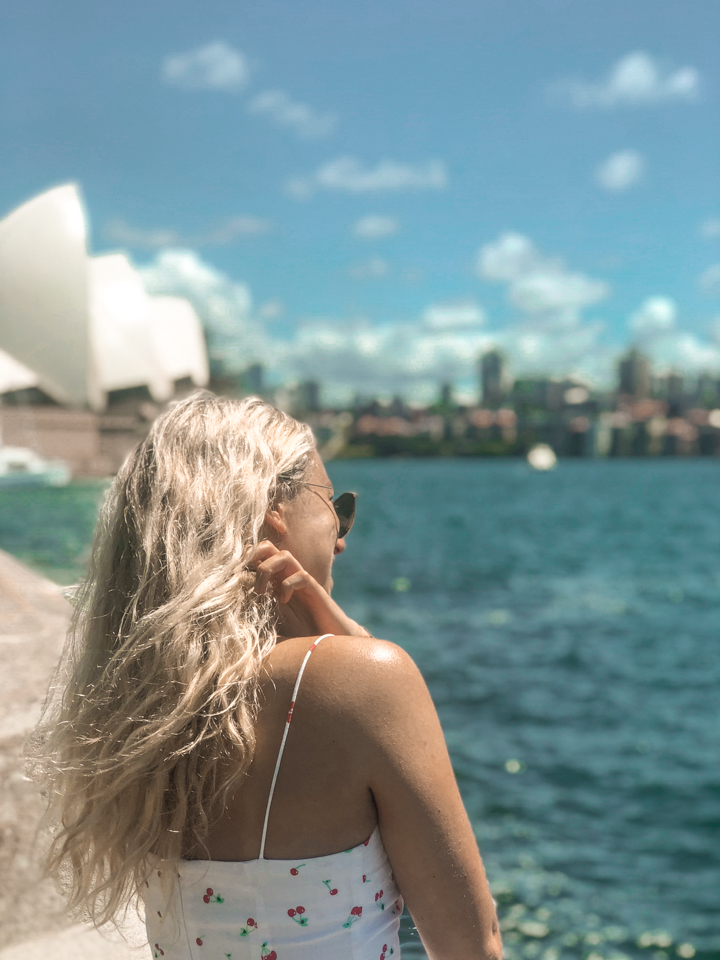

If you know anything about Australia, you probably already know it’s expensive. So how can you travel Australia on a budget?
- Food – Try to avoid eating out as restaurants can be pricey. If the city you’re in has a nearby market, TAKE ADVANTAGE! I only discovered how great the Queen Vic Market in Melbourne was a few months into living there and it changed everything! Not only was I able to get all my fresh fruits & veggies for the week for under $10 but my friend and I once got 28 mangoes for $5!!! We split the batch and froze about half of it to use in the future for smoothies.
- Free events – No matter where you go in Australia, you’ll be able to find free events. Subscribe to newsletters if you want to be in the know!
- Spend more time outside – Most places in Australia are warm (or at the very least a comfortable temperature) year round. This makes it easy to spend less money while you’re travelling. Go to more beaches, find new hikes to do etc. Australia is your oyster!
You can find my best cheap travel hacks here.
AFTER
Coming home from doing a working holiday visa in Australia isn’t easy. You’ll have the best year(s) of your life and come back to reality and a few unpleasantries …
Taxes:
Depending on when you arrive in Australia you may have to deal with taxes part way through your stay and when you get home, or only once you get home. The tax year is June – June in Australia so if you come at the beginning of the tax season you’ll only have to file taxes once. Otherwise you’ll have to do it twice.
If you employer didn’t deduct tax properly, you’ll end up owing money (like I did). While it sucks having to pay taxes, the process is fairly painless when you’re still in the country. You can lodge your tax return simply through the ATO’s website.
Claim back your Superannuation:
Once you’ve been back in your home country/out of Australia for 6 months you’ll be eligible to claim back some of the superannuation money that was taken during the months you worked! I’m not going to lie … it’s a bit of a pain in the ass but ultimately it’s worth it. I ended up getting somewhere between $1000 – $1500 CAD.
The process begins by getting all relevant info from your Super account. This means the name of the account, your tax file number etc. You’ll find the appropriate form to fill out through the DASP (Departing Australia Superannuation Payment). You can find more information through the ATO’s website here.
Dealing with reverse culture shock:
Believe it or not, reverse culture shock is a real thing. I definitely experienced it to some extent when I came back home to Canada. After getting used to the climate and overall way of life in Australia for a full year, it was a transition.
Don’t be too worried because after a few months, things should naturally go back to normal! You’ll reconnect with friends and things won’t feel so weird.
Accepting that you won’t get to relive the experience:
Acceptance is the final stage. It’s hard to let go of all the memories you’ve made. It’s especially difficult if you don’t have people to share your memories with. A lot of people won’t understand because they’ve never had a similar experience. It may take you some time but eventually you’ll accept that it’s over.
This doesn’t have to be a bad thing though! You can always return to visit on another visa or find yourself back living there at another time. Once you realize this you’ll feel better about accepting it.
Final thoughts
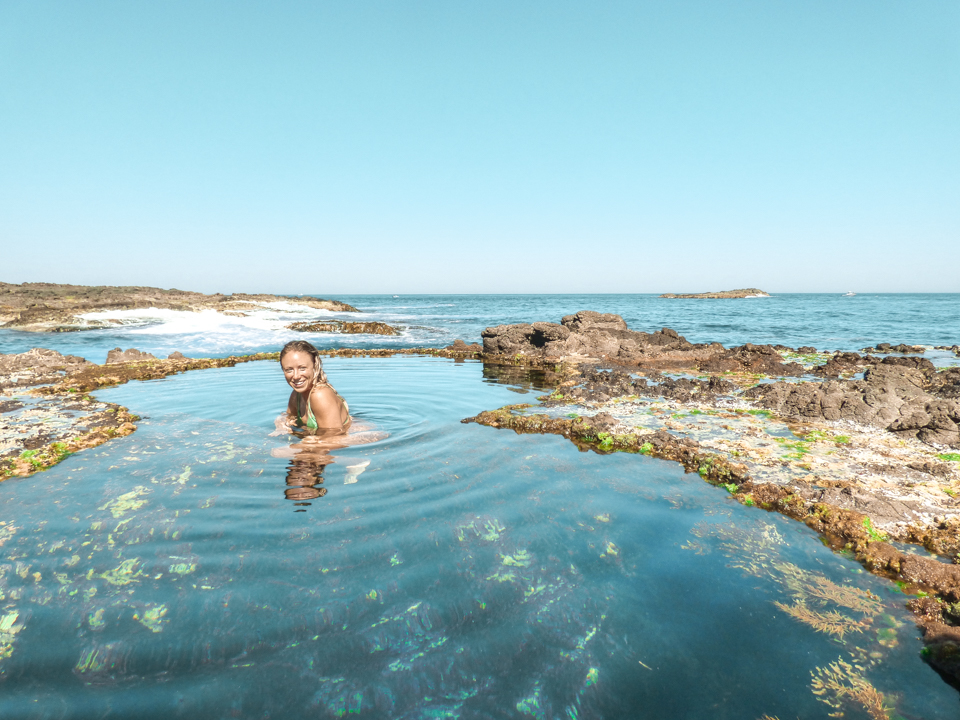
Don’t think about doing a working holiday visa in Australia, just go! You will not regret it and will come back stronger, smarter and having an experience of a lifetime.
Feel free to contact me with any questions! Oh, and don’t forget to follow me on Instagram!
Cheers,
Amy xx
P.S. Before you embark on your working holiday visa in Australia, you NEED to have protection during your trip! I’ve been using SafetyWing’s Travel Medical insurance. It’s great if you’re on a budget but want to make sure you’re covered in case an unforeseen incident occurs.







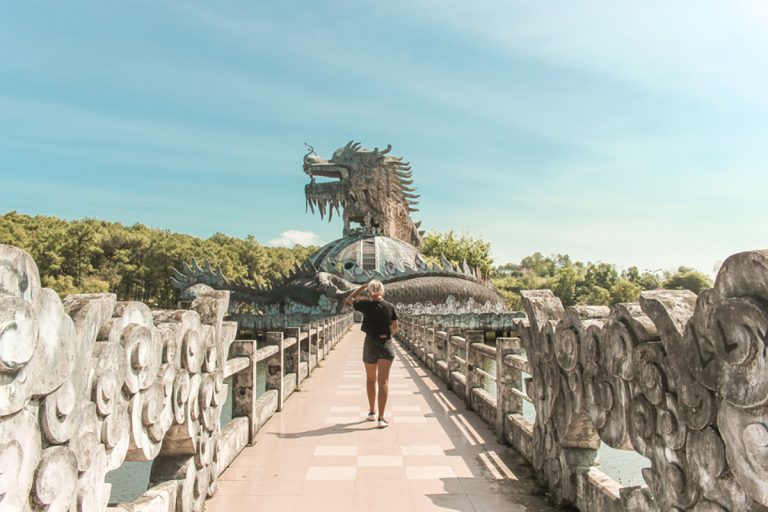
3 Comments